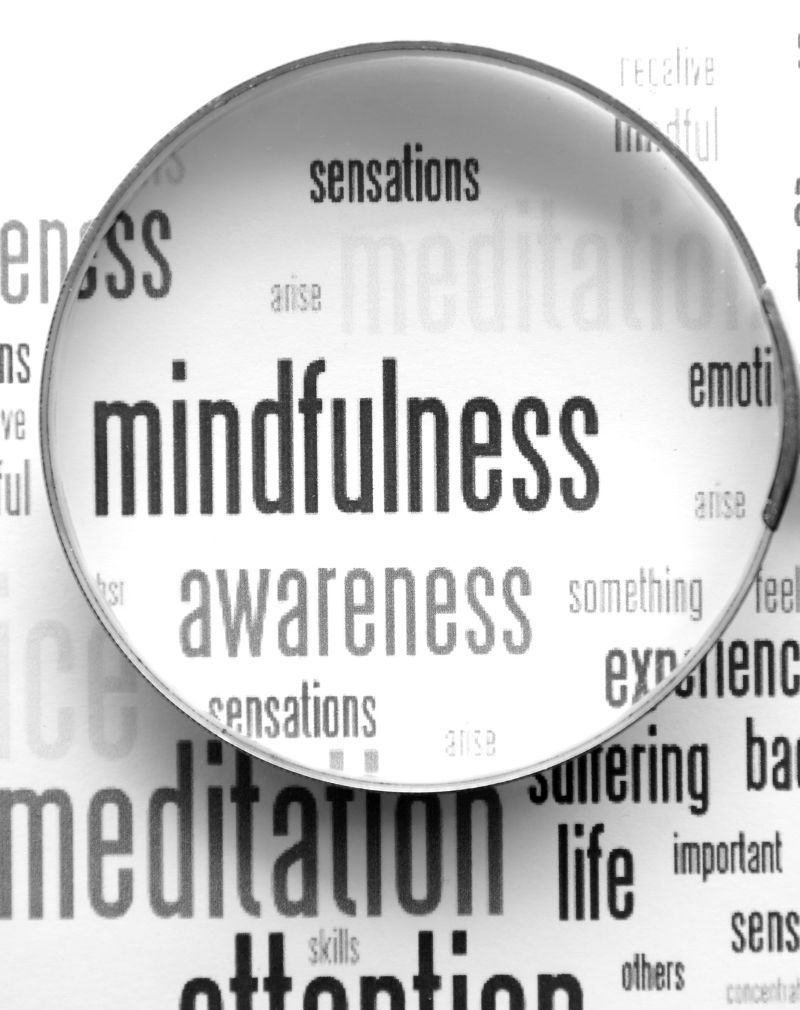The dawn of a new year often brings with it a sense of renewal, hope, and fresh beginnings. This period is widely recognized as the time when people set aspirations and goals to better themselves, both personally and professionally. But why are aspirations so critical to maintaining good mental and emotional health? And how are they tied to the concept of New Year’s resolutions? In this blog, we’ll explore how aspirations connect to mental health, the psychological reasons they are often associated with the New Year, and the role of mental healthcare providers in goal setting. We’ll also dive into the importance of knowing your potential and how career counselors can support individuals at various stages of their careers in setting meaningful goals.
Beyond Resolutions: How Aspirations Fuel Mental and Emotional Well-being
Aspirations, which are defined as ambitions for the future, play a significant role in shaping your mental and emotional well-being. They provide direction, a sense of purpose, and motivation, which are essential components for maintaining mental balance. When you have a clear vision of what you want to achieve, it offers a framework for your daily activities and choices. This sense of purpose can reduce feelings of aimlessness or anxiety, which often stem from uncertainty about the future.
From a psychological perspective, setting and working toward aspirations releases dopamine, a neurotransmitter associated with pleasure and reward. This reward system motivates the brain to keep moving forward. For example, even the act of planning to achieve an aspiration stimulates positive emotions, contributing to mental well-being. Achieving small milestones enroute to larger aspirations can also foster feelings of accomplishment, further boosting emotional health.
New Year, New You: The Mental Health Benefits of Goal Alignment
New Year’s is traditionally seen as a time for reflection and renewal. As one-year closes and another begins, people naturally reflect on what they’ve accomplished, what challenges they’ve faced, and what they want to achieve in the future. This reflection allows people to evaluate their past year’s achievements and carry forward those insights into their new aspirations for the coming year.
The symbolism of a “fresh start” is powerful. The end of the year provides an opportunity to close old chapters and set new intentions, leading many to engage in the practice of setting New Year’s resolutions. Psychologically, this time provides a sense of closure, offering a clean slate on which to build new aspirations. However, while the New Year is a convenient time to set aspirations, the drive to continuously set goals and challenge oneself is a year-round process. The most important factor is consistency in pursuing these goals, regardless of when they are set.
The Aspiration Effect: Connecting Past Achievements with Future Goals for Mental Well-being
Reflecting on the past year’s accomplishments provides a strong foundation for setting new goals and aspirations. Recognizing your successes—whether personal, professional, or otherwise—reinforces your ability to grow and overcome challenges. It builds confidence in your skills and highlights areas for improvement.
To connect last year’s achievements with your New Year’s aspirations:
1. Reflect on Your Wins: What did you achieve last year? What skills did you develop? List these accomplishments and consider how they can serve as steppingstones for new aspirations.
2. Identify Gaps: Were there any aspirations or goals you fell short of? Understanding what prevented you from achieving these goals can help you adjust your approach for the coming year.
3. Build on Momentum: Use the momentum from past achievements to set new, larger, or more ambitious goals. For instance, if you developed a new skill last year, your aspiration this year might be to master it or use it to advance your career.
4. Create Continuity: Set goals that are a natural progression from your previous achievements. This ensures that your aspirations are rooted in your current strengths and experiences, making them more realistic and achievable.
The Psychology of Aspiration: How Setting the Right Goals Boosts Mental & Emotional Health
Aspirations are the broad, overarching ambitions that guide our lives, while goals are the concrete steps we take to achieve those ambitions. For example, if your aspiration is to improve your physical health, a related goal might be to run a marathon, start a regular exercise routine, or adopt a healthier diet. In essence, aspirations provide the “why” behind our actions, while goals give us the “how.”
Setting specific goals is critical to achieving aspirations because they offer measurable benchmarks and timelines, making it easier to track progress and maintain motivation. Without clear goals, aspirations can remain vague and distant, leading to frustration or feelings of being overwhelmed.
The Motivation Matrix: How Aspirations Influence Your Brain and Behavior
Yes, aspirations do motivate human behavior and play a critical role in shaping how we think, feel, and act. The brain is wired to pursue rewards and challenges, making aspirations an essential driving force behind our actions. When we are motivated by our aspirations, the brain’s reward pathways are activated, leading to increased focus, energy, and resilience. This motivation propels us to overcome obstacles, make sacrifices, and push through difficulties to achieve our desired outcomes.
Research in behavioral psychology shows that when people have meaningful aspirations, they are more likely to engage in goal-directed behavior and experience enhanced cognitive function. This is why setting aspirations is not only beneficial for long-term achievement but also for daily motivation and productivity.
Unlocking Potential: The Power of Aligned Goals and Self-Knowledge
Mental healthcare providers, such as therapists, psychologists, and counselors, can play a vital role in helping individuals set the right goals for themselves. Often, mental health challenges can cloud our ability to see the path forward clearly. Issues such as anxiety, depression, or low self-esteem can make it difficult to set or pursue meaningful goals. A mental healthcare provider can help in several ways:
1. Clarifying Aspirations: By engaging in conversations about your values, passions, and strengths, a therapist can help you clarify your aspirations and set goals that align with who you are and what you want.
2. Overcoming Mental Barriers: Mental healthcare providers can identify psychological barriers that may be preventing you from pursuing your goals and provide strategies to overcome them. For example, they might help you address fear of failure, procrastination, or perfectionism.
3. Building Self-Awareness: Providers help you gain insight into your thought patterns, emotional triggers, and behaviors, allowing you to set realistic and achievable goals.
4. Providing Accountability: Regular check-ins with a healthcare provider can help keep you accountable and motivated as you work toward your goals.
Mindful Aspirations: How Setting the Right Goals Boosts Mental Health
Knowing your potential is critical to making meaningful progress in life. Your potential includes your strengths, talents, abilities, and limitations. When you are aware of your potential, you are better able to set goals that are challenging yet achievable.
Failing to understand your true potential can lead to setting goals that are either too ambitious or not challenging enough. In either case, this can lead to frustration, lack of motivation, or even burnout. On the other hand, when you set goals that align with your potential, you are more likely to experience success, which in turn boosts confidence and motivates you to aim even higher.
The Psychology of Aspiration: Unlocking Your Potential for Success
Setting goals that align with your abilities is important because it ensures that you are working within your capacity while also pushing yourself to grow. If your goals are too far beyond your current abilities, you may become discouraged and give up. Conversely, if your goals are too easy, you won’t experience the sense of achievement that comes from overcoming a challenge.
The key to setting the right goals is to strike a balance between challenge and attainability. Your goals should stretch your abilities but still be within reach. This process, often called *goal-setting theory*, emphasizes the importance of setting SMART goals—Specific, Measurable, Achievable, Relevant, and Time-bound.
Guided Growth: The Role of Professionals in Setting Life-Changing Goals
Career counselors are valuable allies in helping individuals—whether beginners or mid-career professionals—set the right career goals. Career development is an ongoing process, and having the guidance of an experienced counselor can make all the difference in making informed decisions about your career path. Here’s how mental health professionals or coaches support goal setting:
1. Self-Assessment: Career counselors help you understand your skills, strengths, and interests through various assessments. This can provide clarity about the types of careers or roles that might be the best fit for you.
2. Career Planning: They assist in setting long-term career aspirations and breaking them down into short-term, actionable goals. This might involve educational plans, skill development, or job searches.
3. Navigating Transitions: Whether you’re entering the workforce for the first time, considering a career change, or seeking advancement, career counselors provide support through these transitions by helping you identify your next steps.
4. Job Market Insights: Counselors offer insights into the job market, helping you set realistic goals based on current industry trends and future opportunities.
Career Compass: How Counselors Help You Navigate Your Aspirations
Various assessments can help individuals uncover their true potential, strengths, and areas for growth. These tools can be particularly helpful for those looking to set goals that align with their abilities:
– Personality Assessments: Tools like the Myers-Briggs Type Indicator (MBTI) or the Big Five Personality Test help you understand your personality traits, which can guide your career aspirations and goals.
– Strengths Assessments: The CliftonStrengths assessment helps you identify your top strengths, allowing you to focus on areas where you naturally excel.
– Skills Assessments: Skills assessments such as the Skills Matcher from CareerOneStop can help you identify your current skill set and highlight areas for improvement.
– Emotional Intelligence (EQ) Assessments: Understanding your emotional intelligence through tools like the Emotional Quotient Inventory (EQ-i) can improve your interpersonal skills and leadership potential.
At American Wellness Center Center located in Dubai Healthcare City, our team of professionals offer these assessments using evidence based tools and techniques in a very safe and non-judgmental environment . They are ready to guide you through this phase of struggle by holding hands and put all efforts to enable you find your right potential.
Aspirations and goals are deeply interconnected, and both play a critical role in shaping your mental, emotional, and professional well-being. Reflecting on your past achievements and setting new aspirations allows you to grow continuously and maintain a sense of purpose. Whether through self-reflection, professional guidance, or the support of mental healthcare providers, setting the right goals aligned with your potential is key to achieving long-term success and personal fulfillment.
At American Wellness Center Western trained, DHA Licensed , certified and highly qualified Career counselors, Life Coach and mental health professionals have helped countless individuals to get through their struggles and achieve their goals where they feel satisfied and are able to navigate further route towards more growth . The role these professionals paly is invaluable in this journey of self-discovery by aligning your aspirations with your strengths and abilities as you can not only achieve your goals but also experience greater satisfaction, resilience, and well-being in all aspects of your life.



